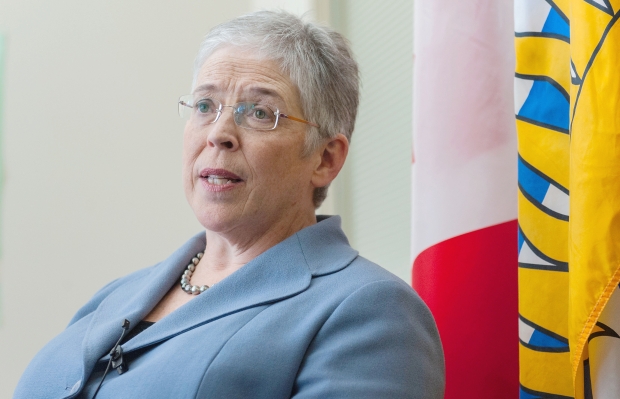VICTORIA — The heads of B.C.’s six health authorities have urged the government to halt a planned reorganization of the province’s nurses until there is a full understanding of a move that some say could cost about $10 million a year.

“We believe that extensive consultation must take place to avoid some unintended result which would severely compromise the provision of effective and efficient care and in fact not be in our patients’ best interest,” they wrote in a confidential April 4 letter.
It does not mention the election but appears to express concern that the government might rush ahead to beat next week’s dissolution of the legislature for the start of the election campaign.
At issue is legislation — passed but not yet in force — that would change the bargaining association for the province’s licensed practical nurses, who last year joined the B.C. Nurses’ Union.
The health authorities say the move means the LPNs may receive increased, costly compensation, while the nurses’ union says any improvements would still have to be negotiated.
In an interview Monday, Health Minister Margaret MacDiarmid confirmed estimates that the change could cost about an extra $10 million each year.
“The licensed practical nurses would be moving into a group that has some after-hour premiums, some on-call premiums and I think there are some clothing and meal allowances as well that they don’t currently have,” she said, explaining the reason for any increased costs.
- Three B.C. men fined, banned from hunting after killing pregnant deer
- B.C. child-killer’s attempt to keep new identity secret draws widespread outrage
- Inquest hears B.C. hostage was lying on her captor before fatal shooting
- ‘We’ve had to make a 180’: What Oregonians say they got wrong with decriminalization
B.C. Nurses’ Union president Debra McPherson disagreed with the minister’s statement.
“All of that stuff is not automatic. It’s still subject to negotiation, and we made that really clear in our consultation,” she said.
“We don’t expect them to get increases in compensation, we expect that will be a part of our next round of collective bargaining.”
In their letter, obtained by The Vancouver Sun, the health authority presidents did not explicitly mention the May 14 election, but did appear worried the government might move ahead before doing proper consultation, and possibly before the legislature dissolves next week for the campaign.
“We are concerned that this is a very rushed process,” they wrote in the letter, sent via email to Lisa Hansen, who was appointed by government to conduct the consultation process.
“We see this letter as the beginning of the consultation process AND EXPECT TO MEET WITH YOU TO DISCUSS IN MORE DETAIL THESE IMPORTANT ISSUES,” they added, using all capital letters to emphasize their point.
Meanwhile, the B.C. Nurses’ Union said that if the government doesn’t make the change by the start of the election campaign next Tuesday, it risks losing support of nurses across the province.
“The nurses are watching,” said McPherson.
“Nurses are non-partisan … but certainly you would have thousands of nurses who would be very upset with a party who promises, through legislation, to deliver them into a new bargaining association – something they’ve worked for, for over a decade – and then doesn’t deliver on the final last step,” she added.
“So they (the B.C. Liberals) risk that, any government would risk losing support of those people.”
The BCNU claimed representation for more than 7,200 licensed practical nurses last October after a successful raid of the Hospital Employees’ Union.
The union has been lobbying government ever since to move the LPNs into the Nurses’ Bargaining Association to allow them to negotiate contracts alongside the province’s other nurses.
Government passed legislation during the session this spring to make that change, but has promised full consultation before bringing the law into force.
In their letter, health authority presidents say they can’t support implementation of the legislation “until a thorough and complete consultation process is put in place.” They say the consultation should include other provinces such as Alberta, Manitoba and Ontario, adding that it would be “negligent to complete this consultation without understanding the full effect which will flow from such a change.”
MacDiarmid would not rule out the possibility of enacting the law before the start of the campaign next Tuesday, but did say she is committed to conducting meaningful consultation.
“If we were to rush through it, or if we were to not do it at all, then there is the risk that somebody might decide to seek a remedy through the courts and there is the possibility, if a court made a ruling, that there could be as long as a two-year period before anything like this could be contemplated again,” she said.
“Now can it be concluded in the next couple of days? I don’t know.”
New Democratic Party critic for labour, Shane Simpson, said he does not believe there has been significant consultation, adding this is too complex a change to be rushed.
“It just makes no sense for the minister to break her commitment, to not have a full and meaningful consultation before this thing goes ahead,” he said.
“I just don’t think you go and do things that the health authorities say are going to cost millions of dollars without having a sense of what you’re doing and what you’re accomplishing.”
Licensed practical nurses have two-year practical nursing diplomas from accredited colleges, and work in a variety of settings including acute care, long-term extended care, home care or community care.
Registered nurses have four-year degrees in nursing from a Canadian university or its international equivalent, and can specialize in a variety of areas such as surgery, obstetrics, psychiatrics and pediatrics.



Comments